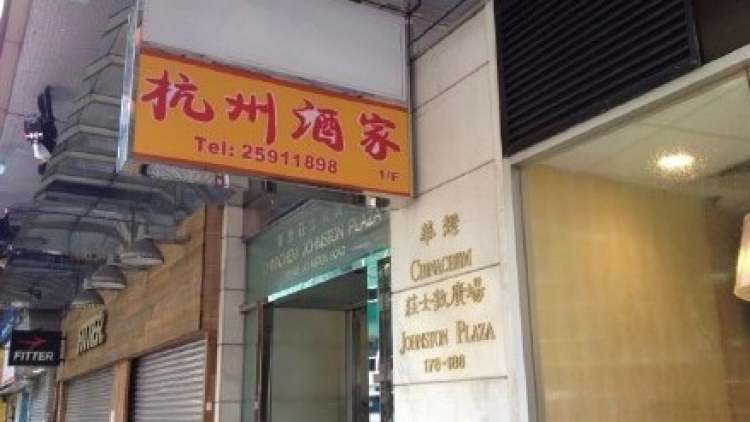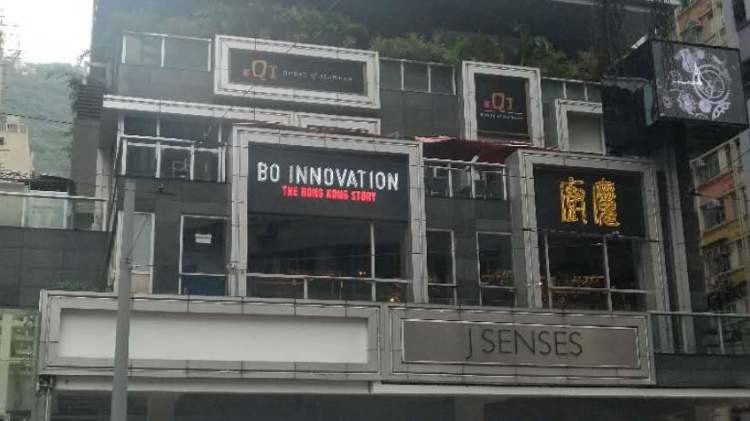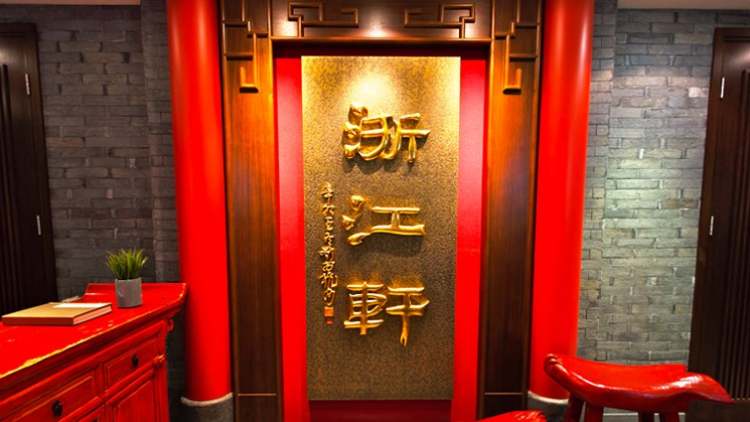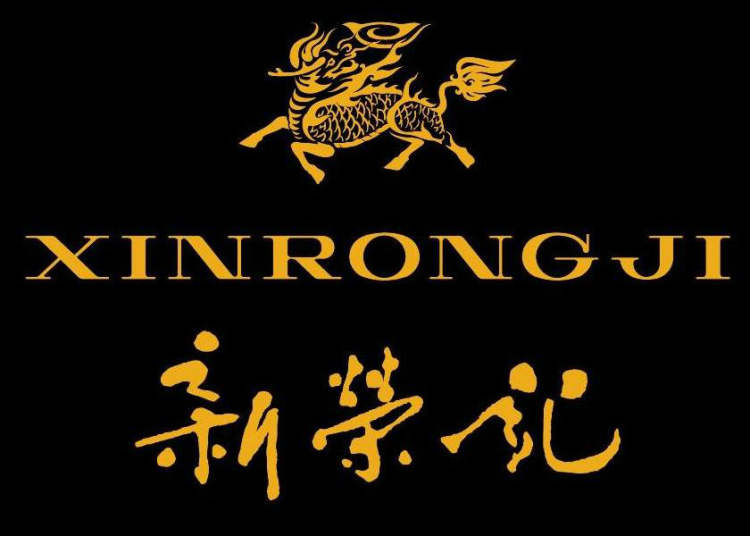Hong Kong is a typical city of immigrants, except for most immigrants from Guangdong and Fujian provinces, there are many immigrants from Jiangsu, Zhejiang and Shanghai in Hong Kong's demographic structure. In terms of catering, Cantonese cuisine does not dominate the world in Hong Kong's Chinese food industry, and Jiangsu, Zhejiang, and Shanghai cuisine also occupy an important role. Opened in 2005, Hangzhou Restaurant is a long-established Jiangsu and Zhejiang restaurant in Hong Kong, and its reputation has not diminished since its opening, and many celebrities have visited it. The store sign "Hangzhou Restaurant" is inscribed by Jin Yong, and the store is hung with Wu Boxiong's inscription "The sages are complete, and the guests are full of customers", Cai Lan, Ni Kuang, etc. have inscriptions, and celebrity photos are hung all over the interior wall of the restaurant.
Many people are familiar with Hangzhou's local Hangzhou restaurant, and it is easy to confuse it with this Hangzhou restaurant in Hong Kong. Wu Guoliang, the father of Wu Ruikang, the operator of Hangzhou Restaurant in Hong Kong, once studied cooking at Hangzhou Restaurant in Hangzhou, and was rated as a national second-class chef in 1983, and later promoted to a first-class chef, with the reputation of "Hangzhou's first chef". Wu Guoliang later came to Hong Kong and served as the general manager of Tianxiang Lou, a well-known restaurant in Hangzhou, Hong Kong. After his son Wu Ruikang's Hangzhou restaurant opened in Hong Kong, Wu Guoliang left Tianxiang Lou and served as a culinary consultant for Hangzhou Restaurant in Hong Kong. The two Hangzhou restaurants are somewhat related, but there is no relationship between the two restaurants, and the local Hangzhou restaurants in Hangzhou are no longer in the past, while the Hong Kong Hangzhou restaurants have inherited the original taste as always, and are rare Chinese restaurants in Hong Kong that can taste the taste of home.
Hong Kong Hangzhou Restaurant focuses on Hangzhou cuisine, while taking into account Ningbo cuisine and Shaoxing cuisine, which can be said to cover the main branches of Jiangsu and Zhejiang cuisine. Although it is the same Jiangsu and Zhejiang cuisine, the taste of the three is not the same, Hangzhou cuisine is light, Ningbo cuisine is salty and fresh, and Shaoxing cuisine is pickled. Of course, in order to adapt to localization, Hong Kong Hangzhou restaurants have also made certain improvements to the dishes, such as less oil and less salt, and still adhere to the tradition in terms of practices, without losing the essence of Zhejiang cuisine. In cooking, Hong Kong Hangzhou restaurant excellence, the flower chicken here must be wrapped with three layers of lotus leaves, sealed with wine jar mud and roasted for five hours, the shrimp of Longjing shrimp must be artificially extruded river shrimp, ham from Jinhua, fish balls are also a local practice in Zhejiang, no starch.
The menu of Hong Kong Hangzhou restaurant is rich in selection, basically covering all the contents of Jiangsu and Zhejiang cuisine. However, there are no traditional dishes of Jiangsu and Zhejiang cuisine such as roast duck, boiled fish, and dandan noodles that cater to the general audience in the menus of restaurants in Hangzhou, Hong Kong, which is rare in Hong Kong cuisine that wins with diversity and novelty. As an authentic Jiangsu and Zhejiang restaurant, there are naturally one or two authentic dishes that are rare in other houses. "Steamed double odor" is one of them. "Steamed double smell" comes from Jiaxing, Zhejiang, the so-called double odor is a dish made of stinky amaranth stalks and stinky tofu steamed together, both ingredients have a unique smell, and the smell of the strong combination is indescribable. The Hong Kong Hangzhou restaurant has been improved to a certain extent, but it still retains its smelly original taste, and if a diner orders this dish, the smell will affect the whole restaurant to some extent.
Fish ball soup with lettuce is a must-order on almost every table. The Jiangsu-Zhejiang version of the fish balls is different from the fish balls made in Guangdong, and the Jiangsu-Zhejiang fish balls are made by mashing grass carp meat without adding starch. Not to mention the umami taste of the fish balls, the tender taste of tofu is indeed difficult to match with ordinary fish balls. Ulva is an aquatic plant, and Taihu Lake in Jiangsu, Zhejiang and Zhejiang is one of its main production areas. The young leaves of Ulva are edible and are one of the most prized vegetables. The lettuce itself has no taste, but the texture is mellow, delicious and tender, and the texture complements the soup with the fish balls.
Nirvana box is also a specialty of Hong Kong Hangzhou restaurant. In fact, under the name of Fugui box, it is fried stinky tofu, which belongs to the famous snack of Shaoxing, which is different from Changsha stinky tofu, which is golden brown and dipped in sauce, which is very rich in hometown flavor.
In 2010, Hangzhou Restaurant was favored by Michelin, a popular food and beverage selection organization, and won the honor of one Michelin star for five consecutive years. However, the Hangzhou restaurant under the halo of Michelin is extremely popular, and negative reviews have also appeared one after another. Now, after the Michelin halo faded, Hong Kong's Hangzhou restaurants have returned to calm, and even mainland tourists who often eat Jiangsu and Zhejiang cuisine are worth a try.







